How Do You Pick Your Perfect Hotel in Maldives?
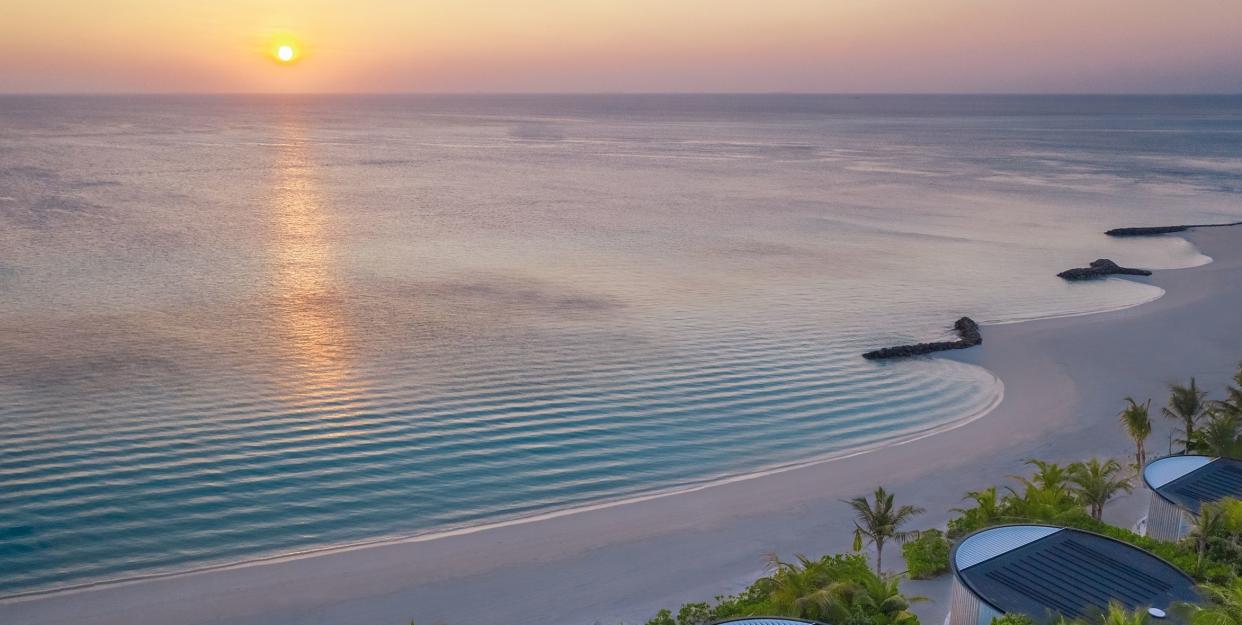
It isn't often that travel comes with a guarantee of having all around you gloriously blue water, white sand, steady sunshine, and privacy. But that's the promise of the Republic of Maldives, the archipelago of 1,192 coral islands spread over 3,500 miles of the Indian Ocean. Maldives only began to develop to tourism in the early 1970s—the very first resort opened in 1972—but word spread quickly, and ever since, travelers, especially from the European Union, China, Russia, India, and the Middle East, have been beating a path there. Americans? Yes, but a bit less so. Not without reason.
There is the distance: Most commonly, from the U.S., you'd fly Emirates to Dubai. (Etihad and Qatar airlines are other good options, and once pandemic restrictions end, you'll also be able to travel through Singapore.) From there, you board a four- or five-hour flight to the Maldivian capital, Male, followed by either a boat ride or a seaplane transfer to your resort. That's a lot further than the Caribbean, Mexico, or even Hawaii. Then, there is the associated ticket price of such a journey to consider. And there is also an element of confusion: Ever since that first hotel, 165 others have sprung up—and counting. So which one is right for you? It's a fair question without an immediately obvious answer.
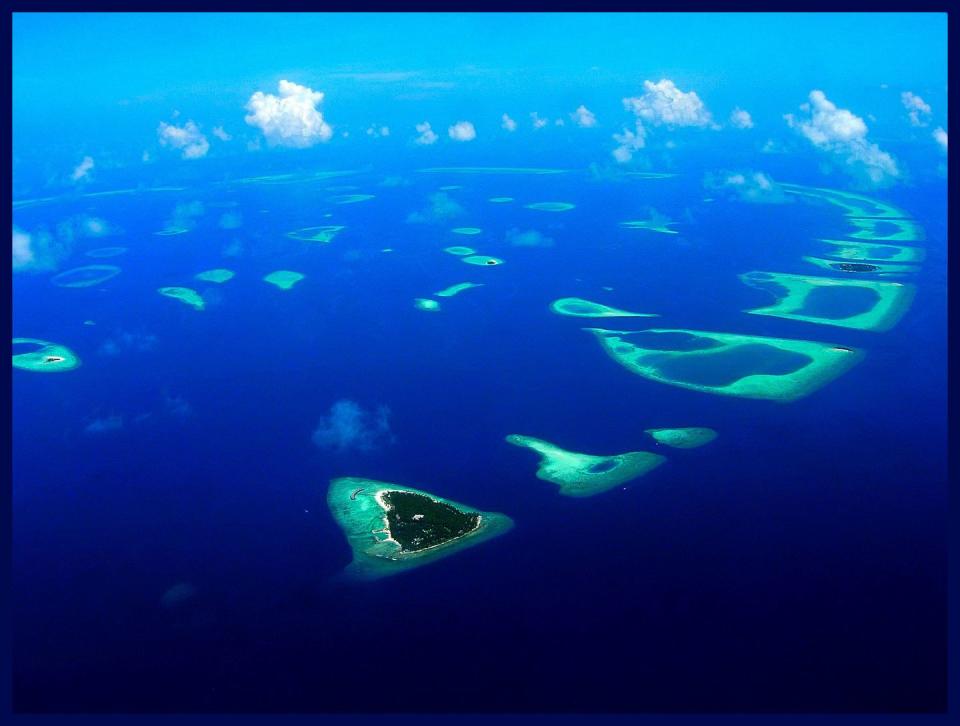
Not only are there so many resorts. Each is on its own flat, little, uninhabited island surrounded by a surreally aquamarine sea—in other words, they all seem to be, at least geographically speaking, selling the same tropical idyll, with 360-degree unpeopled views, empty horizons, and unobstructed sunsets (which in the Maldives, by the way, are slow and kaleidoscopic, and watching them, preferably drink in hand, is a daily ritual). Why this unparalleled privacy and exclusiveness? Because the total population of the Maldives, just 540,544 strong, occupies only 189 of those 1,192 islands. It's the second least populous country in Asia. The rest of them are set aside for agriculture and tourism with no human habitation on them at all.
It's the Robinson Crusoe fantasy on steroids, but blessedly minus the need to learn survival skills, because on many a Maldivian resort, all you need do is summon your butler. As travel advisor Lindsey Wallace, founder of Linara Travel and a specialist in Indian Ocean vacations (often combined with African safaris), put it, "the Maldives have the biggest concentration of luxury resorts in the world. And twelve more are scheduled to open this year."
If you haven't been, whatever FOMO you may be feeling right about now is not misplaced. Especially given the fact that the Maldives have been open to visitors—consistently open, without that frequent pandemic-era whiplash of shifting border rules and protocols—since July 202o. (Not surprisingly: Tourism is 28 percent of the country's GDP, 90 percent of governmental tax revenue comes from tourism-related services, and Maldives has the geologically built-in social distancing that made re-opening feasible.) Meaning that you could—and still can—actually make a plan to travel here and feel confident that the plan will stick. As Wallace notes, "the Maldives have been massive for us throughout this pandemic period. And bookings are back to pre-Covid levels."
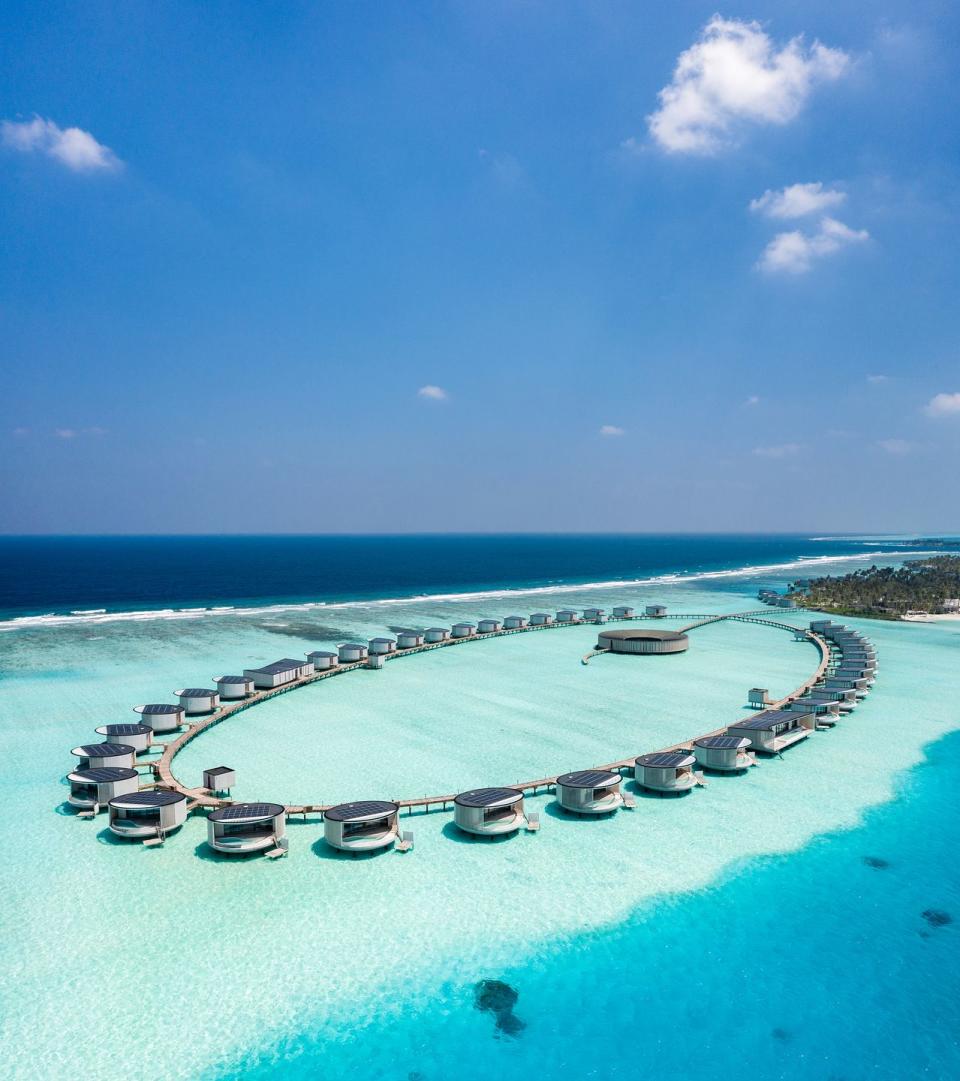
The most notable resort to recently open its doors (on June 1) is the Ritz-Carlton Maldives, Fari Island (the Fari Islands are one of Maldives' many constituent mini-archipelagos). Wallace was there for the opening. I caught up with him, as well as with the property's general manager, Mark Hehir, to hear them out on what exactly differentiates the resorts of the Maldives from one another—i.e., the factors you should consider—and what specifically is the promise of the Ritz-Carlton, which falls squarely into the highest echelon of Maldivian luxury, right up there with One & Only Reethi Rah, the Cheval Blanc Randheli, and a handful of maybe eight to ten others, including the more "bare-foot-luxury" Soneva Fushi. (Full disclosure: I have not yet visited the Fari Islands, but have known Wallace journalistically for years and will take his word for anything Maldives. Hehir likewise is a seasoned Maldivian expert and enthusiast, who prior to Ritz-Carlton spent some 15 years at Reethi Rah.)
For the perfect Maldivian resort "fit," you should also, of course, consult with your travel advisor, but here as the key elements that affect luxury and pricing, and which you should take into account:
How far is a resort from Male?
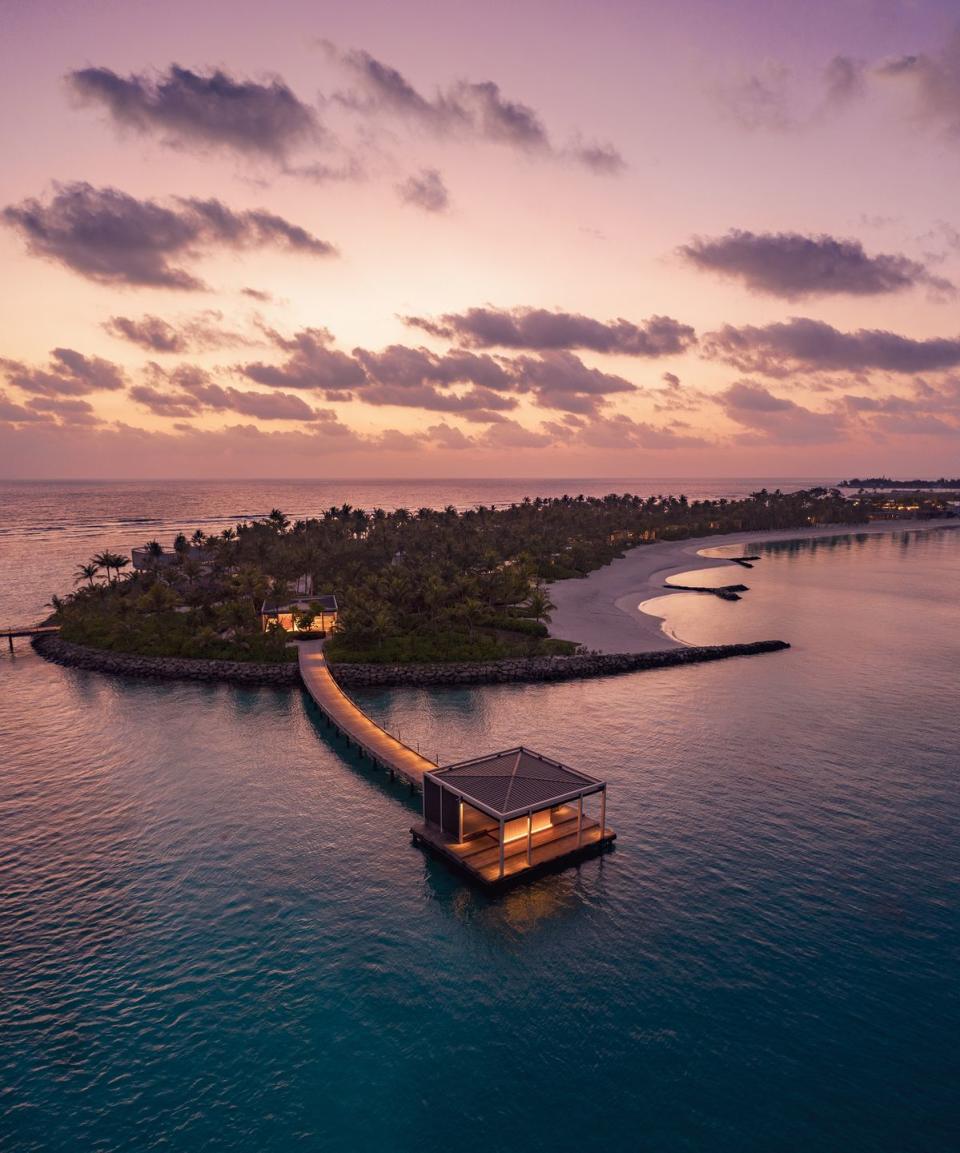
You have had a long flight, most often two, to get to Male. You touch down, The airport is small, you can cross it in 100 steps or so. You're here! Actually—you're not. To get to your island-resort in this thousand-plus-island nation, you now have to board either a seaplane or a boat. The further out your resort is located, the more likely it will be a seaplane, sometimes adding an hour-plus flying time—which can feel complicated both logistically and psychologically. Best options: a quick flight or a boat transfer. The Ritz-Carlton Maldives does it by boat. "It's 45 minute max," says GM Hehir. "We've had the boats built especially for us. They sit lower in the water, so they can go faster—they're like luxury cars in that sense, with two sitting saloons in the main hull. Eventually, we'll have a whole fleet of them. They're part of the fun of arrival."
Wallace adds: "I like the speedboat transfer. And there are travelers for whom a boat feels more Covid-safe."
Can you snorkel from your room (or dive close by)?
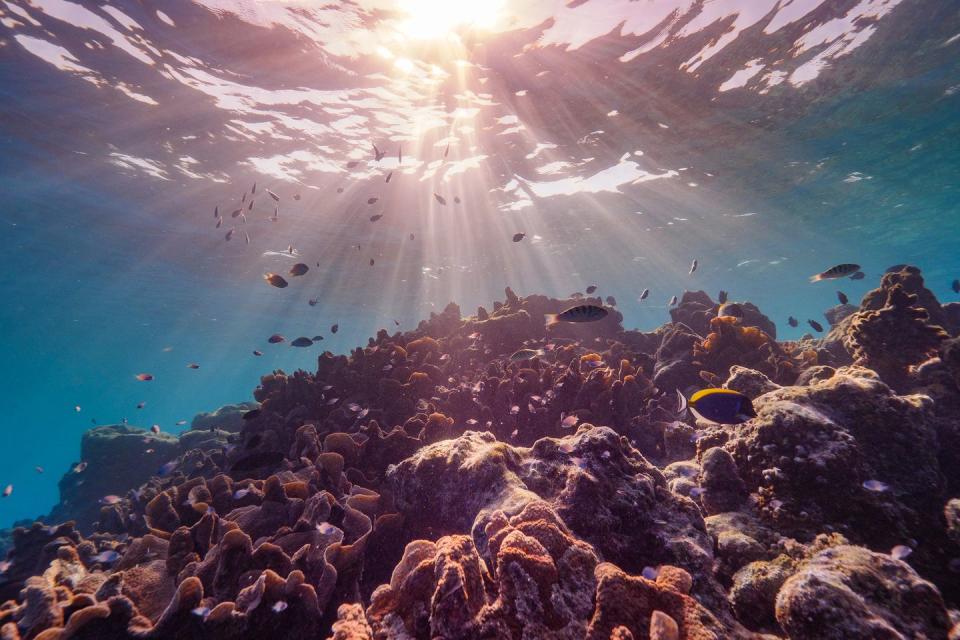
You've made it to the Indian Ocean! The water is azure and warm. You're going in. In addition to swimming about, what's there to see? Some resorts have so-called house reefs close nearby; others require boat rides of varying length. You have to gauge the importance of those logistics to you.
"Around here is really an underwater paradise," says Hehir of the Fari Islands waters. "You can dive right off the house reef, which is a couple of minutes away, and the main group of diving sites—there are about 50 of them—is within 10 minutes by boat. You can be out of your room and into the boat in five minutes, and in the water within 15 minutes of leaving your room. Ditto snorkeling. Just put on your fins right outside your room, put your head in the water, and buzz around until you've had enough. Or, you can go as a group on a longer snorkeling excursion. There is coral and fish all around here."
The Ritz-Carlton partnered with Jean-Michel Cousteau to create the Ambassadors of the Environment program in the Fari islands, whose goal is to educate and inspire both adults and children about the islands' flora and fauna, and especially about the life in the sea. "Which is why," says Hehir, "kids dive for free with us. We really want to get young children into the water so that they start to understand how much our future depends on healthy seas." (An especially poignant point in the Maldives, the lowest country in the world and the one most at risk of being submerged by rising sea levels.) Wallace, who checked in with his nine-year old nephew a few days after the opening, concurs about the richness of marine life around the Ritz-Carlton. "It's also a sign," he notes, "that they've been careful with the construction. It is often not this way after the work is done."
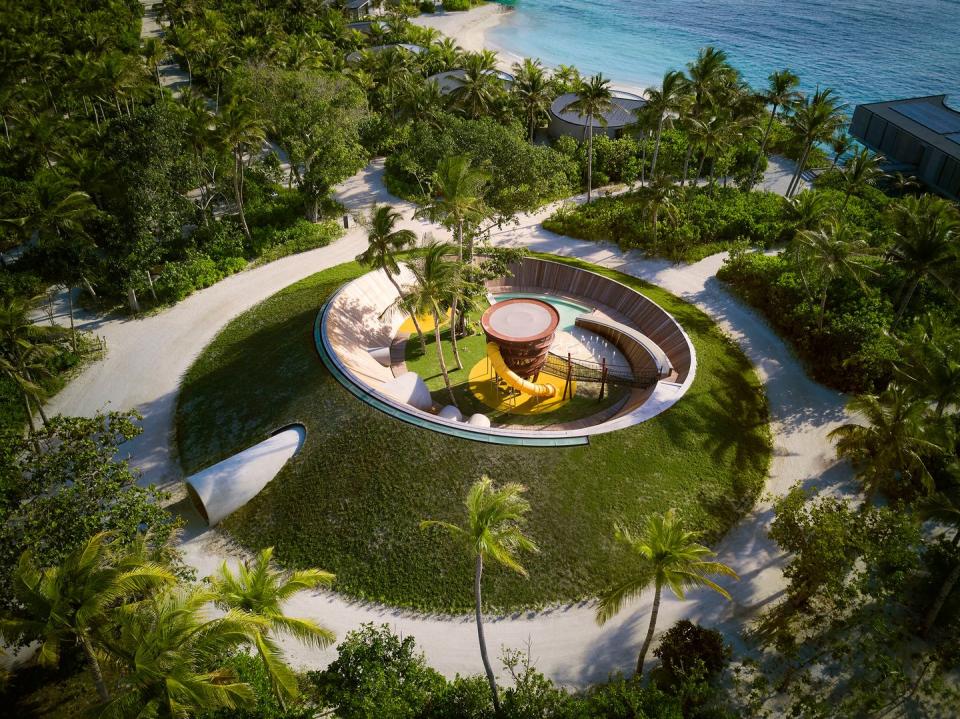
Wallace is also admiring of the children's program, Ritz Kids. "They took a few kids out on a 30-foot boat both to play pirates and have a treasure hunt—they had pirate gear, and there was pirate music playing. But the goal was also to teach them about the ocean and the fish. He came back very excited by all of it. It was clear that they put a lot of effort into the program—it's not just a regular kids' club."
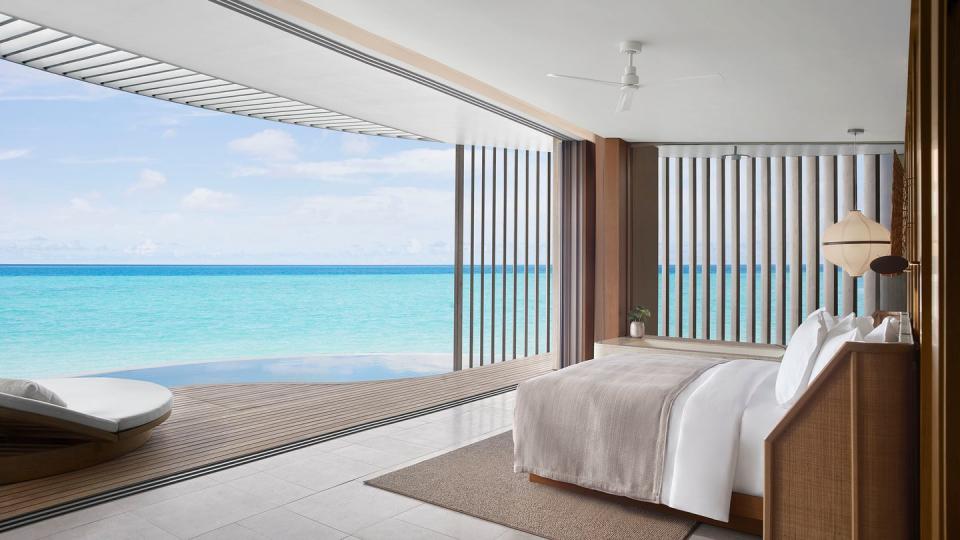
What are the rooms like?
There is size of suites and villas to think about: Are you a couple, a family with children, or a multi-gen group? Some older resorts don't accommodate the latter two as well as newer ones do, which have more options for families. (The Ritz-Carlton has 100 villas, from one to three bedrooms.)
And there is design. Personally, I have never liked "grand" in a tropical, marine, largely outdoor setting; in my book, too many competing details—ornate shapes, fabrics, finishes, furnishings—detract from the beauties of nature. But to each his own, so do ask.
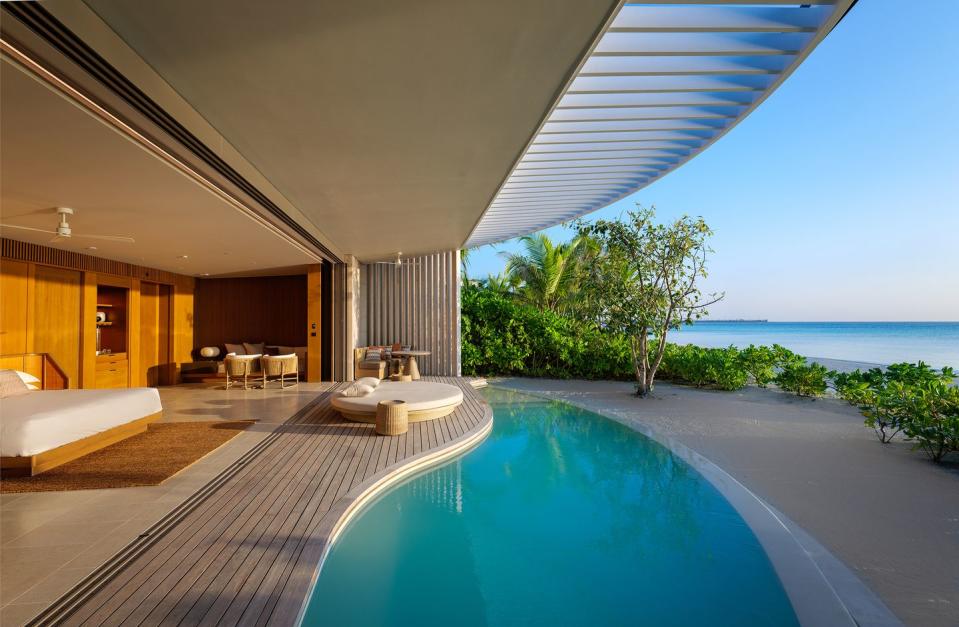
If you, too, are of the less-is-more school, know that the Singapore-based Kerry Hill Architects, who designed the Ritz-Carlton Maldives, are well known for their minimalism. Nothing here clouds or in any way intrudes upon your appreciation of sky, ocean, beach, plants. As Wallace put it, "The Ritz-Carlton has a traditional, rather than a rustic style of luxury; there is air conditioning in the bathrooms. But 'grand' here does not mean over the top. In our two-bedroom villa, we had floor-to-ceiling windows through which we saw our deck, pool, the empty beach, and the water beyond. We saw it all, and that is all we saw."
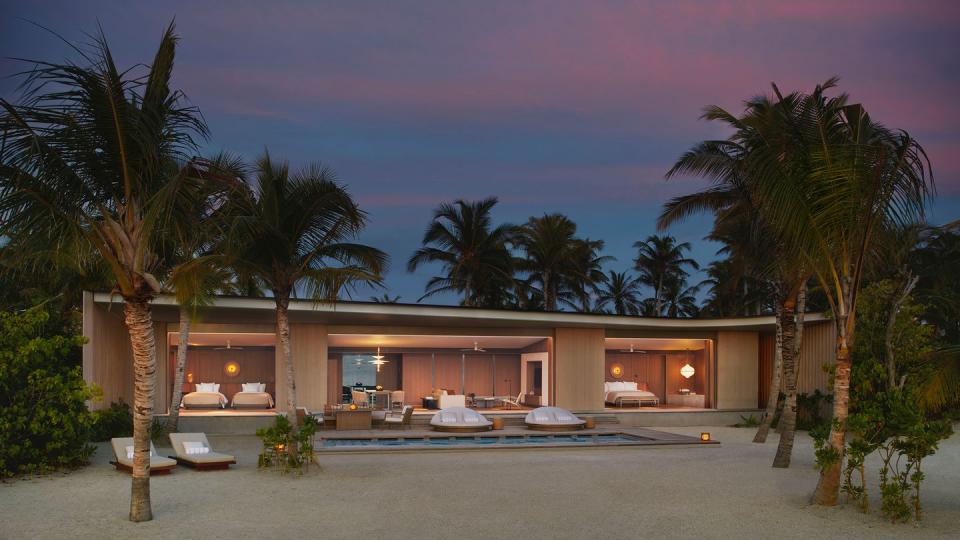
"While the rooms might not be as large as, say, in the Cheval Blanc," Wallace continues, "the use of space is excellent and none are built with a better quality of materials. In many Maldivian resorts, for example, you can hear whistling between the doors on a windy day. Here, you hear nothing."
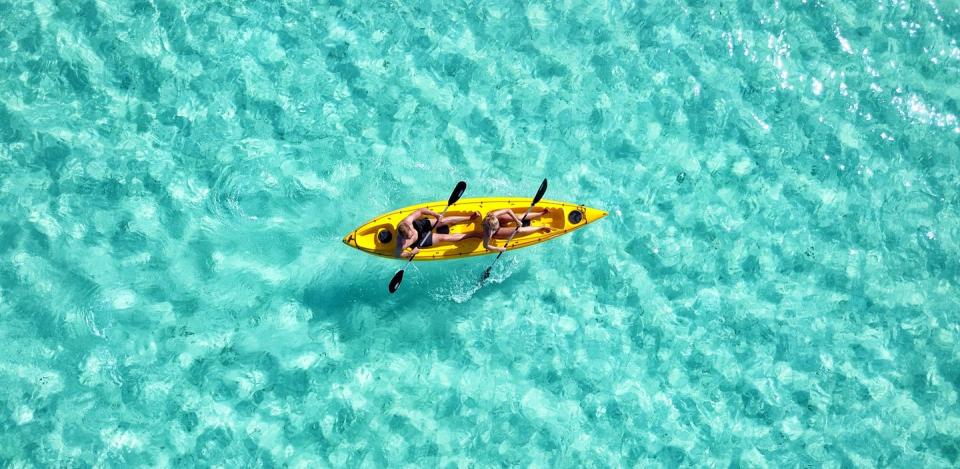
How little—or how much—is there to "do"?
Believe it or not, some people are afraid they might be bored in Maldives—an island version of cabin fever, I guess. But for those for whom languorous days spent wafting about between villa, beach, pool, and a restaurant or two, in between dips in the sea, is not enough, the Fari Islands, says Wallace, "is a new concept in the Maldives": when finished, it will be an archipelago of three private resorts and a marina with shops, a total of 20 restaurants between them, an art studio, and a marine biology center. Among which you can hop—for day trips or less—as often as you like.
Hehir elaborates: "The Ritz-Carlton itself can be said to occupy three islands—the south island, the culinary island (where it's five are located), and the north island. Plus the oval of the over-water villas and spa. But that island over there," he points, "just across 1 mile of water? That's another one, where our sister resort, the Patina, just opened. It belongs to the same owner, but it's by a different architect, has a more bohemian style, and another two restaurants, the bedouin-tent-inspired Arabesque and an Asian street food spot. We have a boat going back and forth every 30 minutes. Rather than flying in from overseas and having just one island, you now have all these options." (The other restaurants, part of the Ritz-Carlton complex itself, specialize in Italian, Cantonese, Japanese cuisines. There's also the relaxed, eclectic Eau Bar and Beach Shack. And there's Dine by Design: basically, anywhere you want, for special occasions—including on the beach, at a table but with your feet in the water, your chef nearby, and torches all around.)
Who's staying with you now, I ask Hehrir. It's June—soon, July.
"Oh we've had guests from the day we opened," he says. "From the U.S. as well. Even in summer. The pandemic induced a travel shift. The Caribbean is filling up too—in June. Tropical is fine in summer now. There are people who have never traveled someplace before, but suddenly did, forced, in a way, by the pandemic closures—and they're coming back. We're seeing this in Maldives, because we were there for people who wanted to get away; we opened up almost a year ago now. And there are also a lot of 'I'm-in-a-taxi-and-I-need-a-room' type of bookings. We're ready for them. Definitely, the world is shifting."
You Might Also Like

